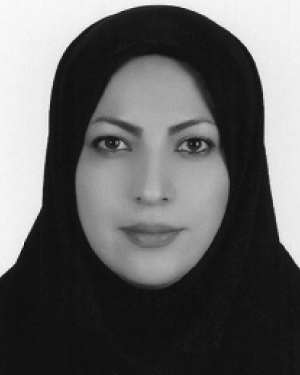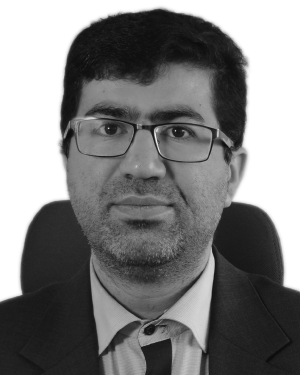The main challenge of power gating implementation is choosing the clusters of switch box multiplexers with the most power-saving opportunities. Since finding an optimal c...
Abstract:
Despite FPGAs rapidly evolving to support the requirements of the most demanding emerging applications, their high static power consumption, concentrated within the routi...Show MoreMetadata
Abstract:
Despite FPGAs rapidly evolving to support the requirements of the most demanding emerging applications, their high static power consumption, concentrated within the routing resources, still presents a major hurdle for low-power applications. Augmenting the FPGAs with power-gating ability is a promising way to effectively address the power-consumption obstacle. However, the main challenge when implementing power gating is in choosing the clusters of resources in a way that would allow the most power-saving opportunities. In this paper, we take advantage of machine learning approaches, such as K-means clustering, to propose efficient algorithms for creating power-gating clusters of FPGA routing resources. In the first group of proposed algorithms, we employ K-means clustering and exploit the utilization pattern of routing resources. In the second group of algorithms, we enhance the power-gating efficiency by minimizing the power overhead introduced by power-gating logic and by taking into account the size of routing multiplexers, which influences the power-gating efficiency. Finally, we enhance and further develop the baseline FPGA routing algorithm to be aware and take advantage of power gating opportunities. The experimental results on Titan benchmark suite and the latest Intel Stratix-IV FPGA architecture in VTR 8.0 show that our approaches achieve an improvement of about 70%, on average, in reducing the FPGA static power consumption over the best power-gating approaches proposed in the previous studies.
The main challenge of power gating implementation is choosing the clusters of switch box multiplexers with the most power-saving opportunities. Since finding an optimal c...
Published in: IEEE Access ( Volume: 9)
Funding Agency:

Department of Computer Engineering, Sharif University of Technology, Tehran, Iran
Zeinab Seifoori received the B.Sc. degree in computer engineering from Shahed University, Tehran, Iran, in 2006, and the M.Sc. degree in computer engineering from the Sharif University of Technology (SUT), Tehran, in 2010, where she is currently pursuing the Ph.D. degree in computer engineering with the Data Storage, Networks, and Processing (DSN) Laboratory, under supervision of Dr. Hossein Asadi. She spent nine months a...Show More
Zeinab Seifoori received the B.Sc. degree in computer engineering from Shahed University, Tehran, Iran, in 2006, and the M.Sc. degree in computer engineering from the Sharif University of Technology (SUT), Tehran, in 2010, where she is currently pursuing the Ph.D. degree in computer engineering with the Data Storage, Networks, and Processing (DSN) Laboratory, under supervision of Dr. Hossein Asadi. She spent nine months a...View more

Department of Computer Engineering, Sharif University of Technology, Tehran, Iran
Hossein Asadi (Senior Member, IEEE) received the B.Sc. and M.Sc. degrees in computer engineering from the Sharif University of Technology (SUT), Tehran, Iran, in 2000 and 2002, respectively, and the Ph.D. degree in computer engineering from Northeastern University, Boston, MA, USA, in 2007. He was with EMC Corporation, Hopkinton, MA, USA, where he is a Research Scientist and a Senior Hardware Engineer, from 2006 to 2009. ...Show More
Hossein Asadi (Senior Member, IEEE) received the B.Sc. and M.Sc. degrees in computer engineering from the Sharif University of Technology (SUT), Tehran, Iran, in 2000 and 2002, respectively, and the Ph.D. degree in computer engineering from Northeastern University, Boston, MA, USA, in 2007. He was with EMC Corporation, Hopkinton, MA, USA, where he is a Research Scientist and a Senior Hardware Engineer, from 2006 to 2009. ...View more

School of Computer and Communication Sciences, École Polytechnique Fédérale de Lausanne (EPFL), Lausanne, Switzerland
Mirjana Stojilović (Senior Member, IEEE) received the Dipl. Ing. and Ph.D. degrees from the School of Electrical Engineering, University of Belgrade, Serbia, in 2006 and 2013, respectively. In 2016, she joined the School of Computer and Communication Sciences, École Polytechnique Fédérale de Lausanne (EPFL), Lausanne, Switzerland. Her current research interests include electronic design automation, reconfigurable computin...Show More
Mirjana Stojilović (Senior Member, IEEE) received the Dipl. Ing. and Ph.D. degrees from the School of Electrical Engineering, University of Belgrade, Serbia, in 2006 and 2013, respectively. In 2016, she joined the School of Computer and Communication Sciences, École Polytechnique Fédérale de Lausanne (EPFL), Lausanne, Switzerland. Her current research interests include electronic design automation, reconfigurable computin...View more

Department of Computer Engineering, Sharif University of Technology, Tehran, Iran
Zeinab Seifoori received the B.Sc. degree in computer engineering from Shahed University, Tehran, Iran, in 2006, and the M.Sc. degree in computer engineering from the Sharif University of Technology (SUT), Tehran, in 2010, where she is currently pursuing the Ph.D. degree in computer engineering with the Data Storage, Networks, and Processing (DSN) Laboratory, under supervision of Dr. Hossein Asadi. She spent nine months as a Research Assistant with the EPFL School of Computer and Communication Sciences. Her research interests include reconfigurable computing and reliability of computer systems. She was nominated for the Best Paper Award at the 2019 International Conference on Field-Programmable Technology (FPT).
Zeinab Seifoori received the B.Sc. degree in computer engineering from Shahed University, Tehran, Iran, in 2006, and the M.Sc. degree in computer engineering from the Sharif University of Technology (SUT), Tehran, in 2010, where she is currently pursuing the Ph.D. degree in computer engineering with the Data Storage, Networks, and Processing (DSN) Laboratory, under supervision of Dr. Hossein Asadi. She spent nine months as a Research Assistant with the EPFL School of Computer and Communication Sciences. Her research interests include reconfigurable computing and reliability of computer systems. She was nominated for the Best Paper Award at the 2019 International Conference on Field-Programmable Technology (FPT).View more

Department of Computer Engineering, Sharif University of Technology, Tehran, Iran
Hossein Asadi (Senior Member, IEEE) received the B.Sc. and M.Sc. degrees in computer engineering from the Sharif University of Technology (SUT), Tehran, Iran, in 2000 and 2002, respectively, and the Ph.D. degree in computer engineering from Northeastern University, Boston, MA, USA, in 2007. He was with EMC Corporation, Hopkinton, MA, USA, where he is a Research Scientist and a Senior Hardware Engineer, from 2006 to 2009. He is currently a Full Professor with the Department of Computer Engineering, Sharif University of Technology (SUT). He is the Founder and the Director of the Data Storage, Networks, and Processing (DSN) Laboratory and the Director of Sharif with the High-Performance Computing (HPC) Center. He is also the Co-Founder of HPDS Corporation, designing and fabricating midrange and high-end data storage systems. His current research interests include data storage systems and networks, solid-state drives, operating systems, and high-performance, reconfigurable, and dependable computing. He was a recipient of the Technical Award for the Best Robot Design from the International RoboCup Rescue Competition, organized by AAAI and RoboCup, in 2001. He was also a recipient of the Best Paper Award at the 15th CSI International Symposium on Computer Architecture and Digital Systems (CADS), in 2010, and the Distinguished Lecturer Award, the Distinguished Researcher Award, the Distinguished Research Institute Award, the Distinguished Technology Award, and the Distinguished Research Laboratory Award from SUT, in 2010, 2016, 2017, and 2019, respectively. He has been ranked among top-ten among 500+ faculties by the Research and Technology Deputy at SUT, for five consecutive years, from 2016 to 2020. More recently, he received the Best Paper Award at IEEE/ACM Design, Automation, and Test in Europe (DATE), in 2019. He was the Program Co-Chair of CADS, in 2015, and the Program Chair of CSI National Computer Conference CSICC), in 2017. He has served as a Guest Editor for IEEE Transactions on Computers and an Associate Editor for Microelectronics Reliability.
Hossein Asadi (Senior Member, IEEE) received the B.Sc. and M.Sc. degrees in computer engineering from the Sharif University of Technology (SUT), Tehran, Iran, in 2000 and 2002, respectively, and the Ph.D. degree in computer engineering from Northeastern University, Boston, MA, USA, in 2007. He was with EMC Corporation, Hopkinton, MA, USA, where he is a Research Scientist and a Senior Hardware Engineer, from 2006 to 2009. He is currently a Full Professor with the Department of Computer Engineering, Sharif University of Technology (SUT). He is the Founder and the Director of the Data Storage, Networks, and Processing (DSN) Laboratory and the Director of Sharif with the High-Performance Computing (HPC) Center. He is also the Co-Founder of HPDS Corporation, designing and fabricating midrange and high-end data storage systems. His current research interests include data storage systems and networks, solid-state drives, operating systems, and high-performance, reconfigurable, and dependable computing. He was a recipient of the Technical Award for the Best Robot Design from the International RoboCup Rescue Competition, organized by AAAI and RoboCup, in 2001. He was also a recipient of the Best Paper Award at the 15th CSI International Symposium on Computer Architecture and Digital Systems (CADS), in 2010, and the Distinguished Lecturer Award, the Distinguished Researcher Award, the Distinguished Research Institute Award, the Distinguished Technology Award, and the Distinguished Research Laboratory Award from SUT, in 2010, 2016, 2017, and 2019, respectively. He has been ranked among top-ten among 500+ faculties by the Research and Technology Deputy at SUT, for five consecutive years, from 2016 to 2020. More recently, he received the Best Paper Award at IEEE/ACM Design, Automation, and Test in Europe (DATE), in 2019. He was the Program Co-Chair of CADS, in 2015, and the Program Chair of CSI National Computer Conference CSICC), in 2017. He has served as a Guest Editor for IEEE Transactions on Computers and an Associate Editor for Microelectronics Reliability.View more

School of Computer and Communication Sciences, École Polytechnique Fédérale de Lausanne (EPFL), Lausanne, Switzerland
Mirjana Stojilović (Senior Member, IEEE) received the Dipl. Ing. and Ph.D. degrees from the School of Electrical Engineering, University of Belgrade, Serbia, in 2006 and 2013, respectively. In 2016, she joined the School of Computer and Communication Sciences, École Polytechnique Fédérale de Lausanne (EPFL), Lausanne, Switzerland. Her current research interests include electronic design automation, reconfigurable computing, and hardware security.
In 2019, she was nominated for the Best Paper Award (BPA) at the International Conference on Field-Programmable Technology (FPT). She was a recipient of the BPA at EMC Europe, in 2016, the Young Scientist Award at ICLP, in 2016, and the Young Author BPA at TELFOR, in 2012. In 2015, the EPFL School of Computer and Communication Sciences presented her with the Teaching Award. She serves on the program committees of FPGA, FPL, and FCCM Conferences. In 2021, she was on the BPA Committee of the FPGA Conference. Since 2019, she has been leading the Project Secure FPGAs in the cloud, through the Swiss National Science Foundation.
Mirjana Stojilović (Senior Member, IEEE) received the Dipl. Ing. and Ph.D. degrees from the School of Electrical Engineering, University of Belgrade, Serbia, in 2006 and 2013, respectively. In 2016, she joined the School of Computer and Communication Sciences, École Polytechnique Fédérale de Lausanne (EPFL), Lausanne, Switzerland. Her current research interests include electronic design automation, reconfigurable computing, and hardware security.
In 2019, she was nominated for the Best Paper Award (BPA) at the International Conference on Field-Programmable Technology (FPT). She was a recipient of the BPA at EMC Europe, in 2016, the Young Scientist Award at ICLP, in 2016, and the Young Author BPA at TELFOR, in 2012. In 2015, the EPFL School of Computer and Communication Sciences presented her with the Teaching Award. She serves on the program committees of FPGA, FPL, and FCCM Conferences. In 2021, she was on the BPA Committee of the FPGA Conference. Since 2019, she has been leading the Project Secure FPGAs in the cloud, through the Swiss National Science Foundation.View more

